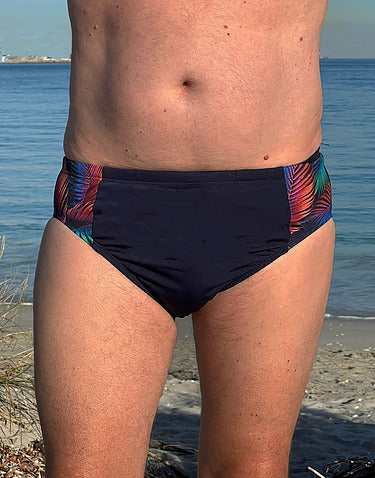Determining whether a swimsuit is truly chlorine-resistant can be essential if you frequently swim in chlorinated pools, as chlorine can degrade standard swimsuit materials over time. Here are some tips to help you identify chlorine-resistant swimsuits:
1. Check the label or product description: Many swimsuit manufacturers explicitly mention if their swimsuits are chlorine-resistant. Look for phrases like "chlorine-resistant," "chlorine-proof," or "long-lasting" in the product description or on the label.
2. Material composition: Chlorine-resistant swimsuits are typically made from specific materials that can withstand exposure to chlorine. Look for swimsuits made of polyester, PBT (polybutylene terephthalate), or blends of polyester and PBT. These materials are known for their chlorine resistance.
3. Spandex content: If the label mentions that the fabric contains a component of lycra, spandex or elastane then the fabric is NOT chlorine proof. These elastic fibres will eventually snap causing the fabric to lose it’s shape.
4. Double-check with the retailer or manufacturer: If you're unsure about a particular swimsuit's chlorine resistance, reach out to the retailer or manufacturer for clarification. They should be able to provide you with information about the swimsuit's material and its suitability for chlorine exposure.
5. Look for special treatments: Some swimsuits undergo special treatments to enhance their chlorine resistance. For instance, they might be labeled as "chlorine-proof treated" or have a specific technology name associated with chlorine resistance.
6. Read reviews: Look for reviews or testimonials from other swimmers who have used the swimsuit in chlorinated pools. Their experiences can provide valuable insights into the product's longevity and chlorine resistance.
7. Understand the limitations: Even if a swimsuit is labelled as chlorine-resistant, it will still eventually degrade over time with prolonged exposure to chlorine. The rubber used for legs and arm holes will eventually perish over time. However, a chlorine-resistant swimsuit should last significantly longer than a regular swimsuit in similar conditions.
Remember that proper care can also extend the life of your swimsuit. Rinse your swimsuit with fresh water after each use in the pool, avoid wringing it out or using a washing machine, and allow it to air dry away from direct sunlight. By following these tips, you can ensure that your swimsuit remains in better condition and retains its chlorine resistance for as long as possible.
SeaJewels Swimwear uses the best quality chlorine proof fabric so shop with confidence



Leave a comment
This site is protected by hCaptcha and the hCaptcha Privacy Policy and Terms of Service apply.